7月15日,为期5天的“一带一路”国家气候变化与极端灾害事件管理研讨会顺利闭幕。该活动由南京信息工程大学主办,全球南南发展中心项目提供支持。
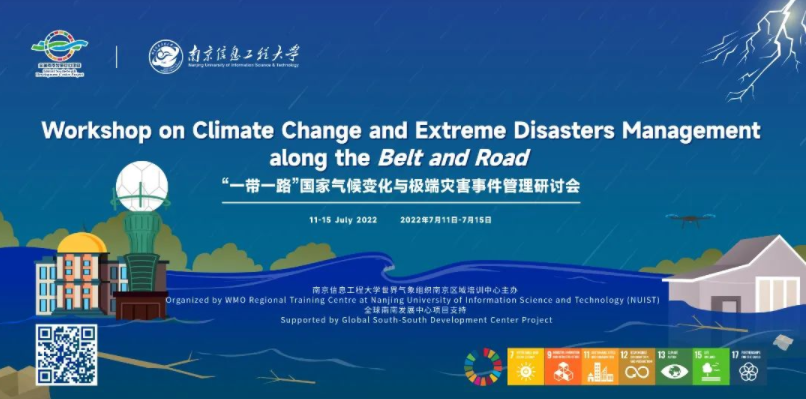
交流中心副主任张翼出席研讨会开幕式并致辞。他指出,交流中心长期致力于国际发展合作,提升可持续发展能力一直是重点关注领域之一。近年来,交流中心与联合国开发计划署、联合国工发组织以及联合国南南合作办公室等机构在相关领域合作实施了多个项目,在针对性地解决中国自身发展不平衡不充分问题的同时,积极整合南南合作资源、加强公私合作伙伴关系、促进中国与其他发展中国家间的经济和技术合作等方面取得了令人鼓舞的成果。
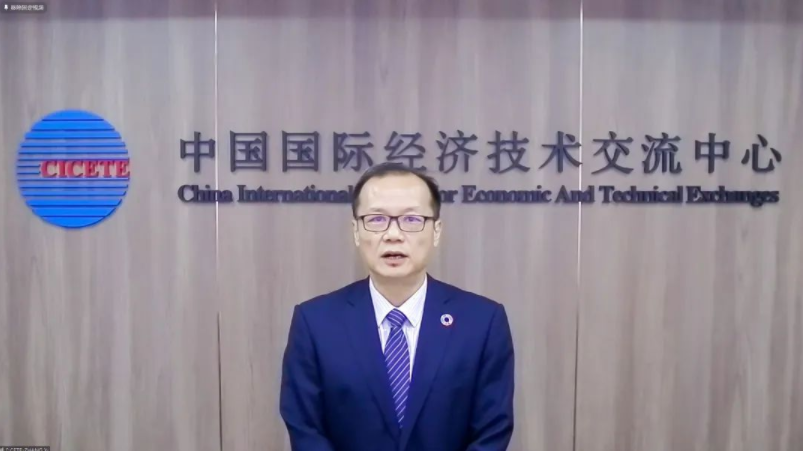
出席开幕式活动的还有联合国南南合作办公室副主任王晓军女士、南京信息工程大学副校长江志红女士、国际科学理事会灾害风险综合研究计划国际项目办公室韩群力教授以及巴基斯坦气候变化部Ali Shaukat博士。
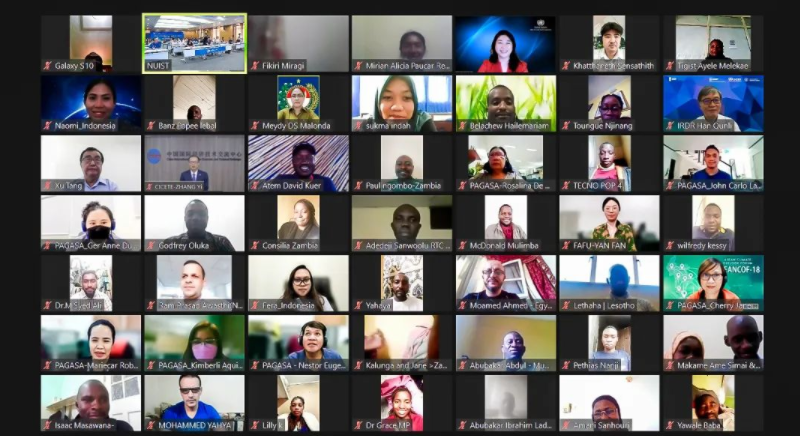
5天的培训活动中,来自中国科学院、南京信息工程大学、世界气象组织、国际科学理事会灾害风险综合研究计划国际项目办公室、国际小水电中心、清华大学地球系统科学系、联合国环境署驻华代表处、布隆迪大学、斐济气象局的专家和代表围绕气候变化、极端灾害事件管理等主题,带来了多场精彩讲座,涵盖了山地灾害与韧性减灾成果案例、IPCC第六次评估报告——气候变化的科学基础、国际多灾种早期预警系统网络非洲、南太平洋地区气候变化应对经验分享等内容。来自53个发展中国家政府、政府间组织、部门协会、学术界和私营部门的250余名政策制定者及从业人员参加了本次研讨活动。
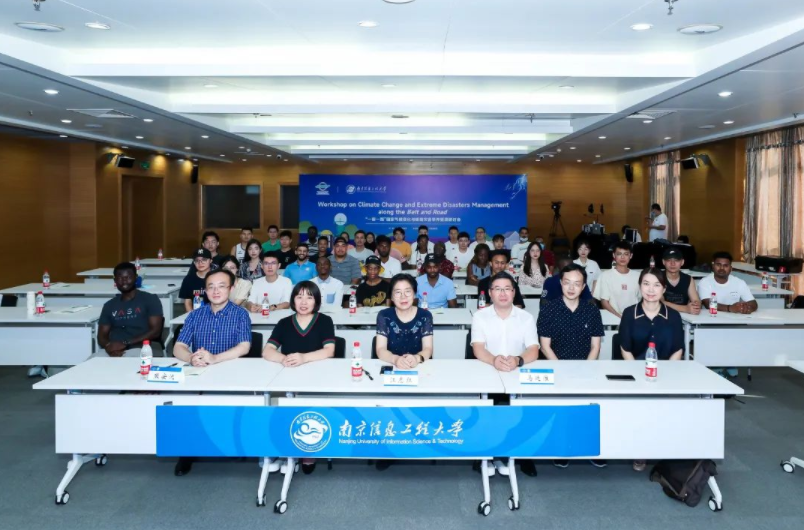
举办线上会议是全球南南发展中心项目应对新冠肺炎疫情的创新举措,旨在通过集结多领域专家,就热点议题进行专题研究和探讨,为合作伙伴单位创新南南合作和国际发展合作形式和内容开拓思路。
The Five-day Training Workshop on Climate Change and Extreme Disasters Management
along the Belt and Road
Drew to a Successful Close
The five-day training “Workshop on Climate Change and Extreme Disasters Management along the Belt and Road” has concluded on 15 July. The Workshop was organized by WMO Regional Training Centre at Nanjing University of Information Science and Technology (NUIST) and supported by Global South-South Development Center Project (GSSDC Project).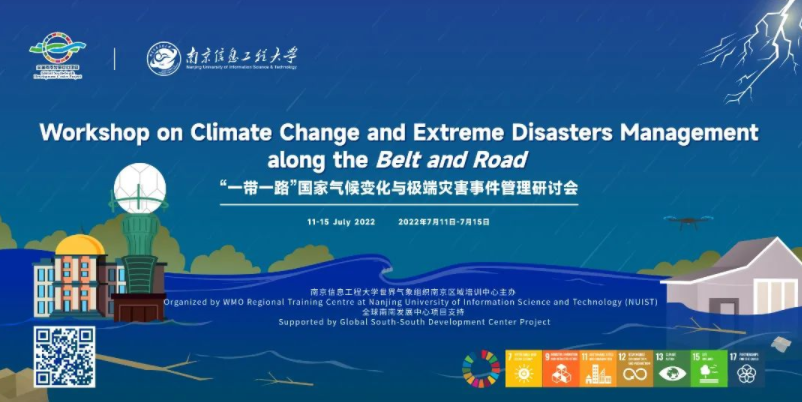
CICETE Deputy Director-General Zhang Yi virtually attended the opening ceremony and delivered an opening remark. He underscored that, CICETE has a longtime commitment to the international development cooperation and enhancing the sustainable development capacity has been one of its focal points. In partnership with UNDP, UNIDO and UNOSSC, CICETE has yielded fruitful results in pragmatic cooperation under the framework of South-South Cooperation, which have made significant contribution in addressing China’s own unbalanced and insufficient development, while actively integrating South-South cooperation resources, strengthening public-private partnerships and promoting economic and technical cooperation between China and other developing countries.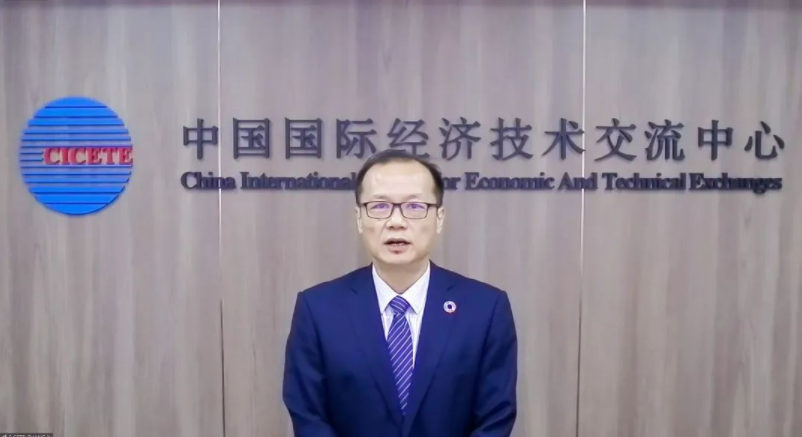
Ms. Xiaojun Grace Wang, Deputy Director of UNOSSC, Prof. Jiang Zhihong, Vice-President of NUIST, Prof. Han Qunli, Executive Director, International Programme Office, Integrated Research on Disaster Risk sponsored by the International Science Council and Dr. Ali Shaukat, Climate Scientist, Ministry of Climate Change of Pakistan delivered the opening remarks respectively.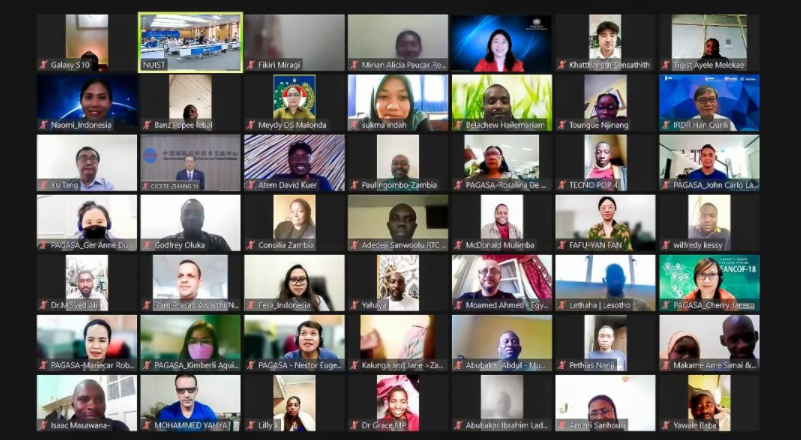
Speakers from Chinese Academy of Sciences, NUIST, World Meteorological Organization, Integrated Research on Disaster Risk sponsored by the International Science Council, International Center on Small Hydro Power, Center for Earth System Science of Tsinghua University, United Nations Environment Programme China, University of Burundi and Fiji Meteorological Service exchanged knowledge, technologies, and shared their insights on solutions and pathways to further deepen South-South cooperation in addressing climate change and disaster management issues, enhance mutual understanding and support mutual learning. The five-day training touched upon various topics, such as the Mountain Hazards and Resilient Mitigation, IPCC AR26: Scientific Basis of Climate Change, Towards an International Multi-hazards Early Warning System, Pathway to Sustainable Development in Post-pandemic Era: Nature- and Eco-based Disaster Risk Reduction, Policies and Actions to Mitigate, Address and Tackle Climate Change in Africa and South Pacific Region, etc. Over 250 officials, policymakers, researchers and practitioners from 53 developing countries participated actively at the workshop.

The webinar series is an innovative response of the GSSDC Project to COVID-19, aiming to synergize partners’ capacities and capabilities for effective collaboration and enhance knowledge exchange and cooperation via on-line brainstorming. The webinars focused on the common concerns to expand ways of thinking and promote awareness-building and experience-sharing in terms of South-South cooperation and international development cooperation.
 返回顶部
返回顶部